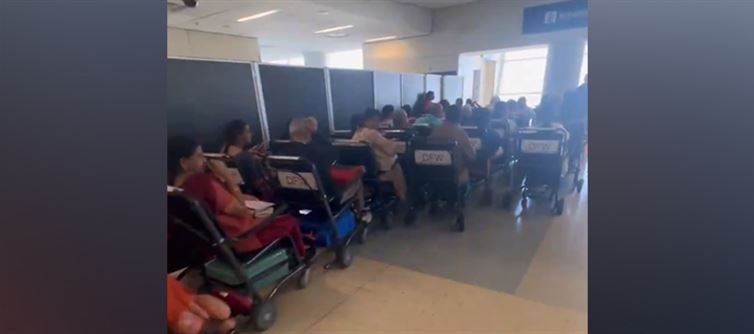
🔥The Uncomfortable Conversation No One Wants to Have
Across several international airports, particularly on long-haul routes, there are rising reports of able-bodied passengers requesting wheelchair assistance not out of medical necessity, but out of convenience, fatigue, impatience, or fast-track benefits.
What should be a critical accessibility service for the elderly, disabled, chronically ill, or post-surgery travelers is at risk of becoming yet another “travel hack.”
And the real victims may be the ones who actually cannot walk, not those who prefer not to.
💥 1. Wheelchairs Exist for Accessibility, Not airport Efficiency
airport wheelchair services are not designed to:
reduce walking time
help avoid queues
assist in rushing for connections
offer “VIP-like” handling advantages
They are meant for people who cannot walk without assistance — not people who would rather not.
🧯 2. When Convenience Gets a Free Pass, Disability Gets a Delay
Misuse of wheelchair services can result in longer wait times, delays in service, and capacity shortages for travelers who genuinely depend on them, especially:
seniors with arthritis or limited mobility
disabled passengers
medical travelers
people with invisible conditions (MS, heart disease, chronic pain, post-surgery)
A 5-minute shortcut for one
It can mean a 50-minute struggle for another.
🎭 3. airlines May Be Enabling It Without Realizing
Some airlines and airports offer wheelchair requests without documentation to avoid:
lawsuits
discrimination claims
operational delays
complaints
social media backlash
While understandable, it opens the door to misuse, intentionally or unintentionally.
🧠 4. Fatigue Is Real — But So Is Intent
Yes, long-haul travel is exhausting.
Yes, airports are huge.
Yes, jetlag is debilitating.
And yes, not all disabilities are visible.
But there is a difference between:
“I physically cannot walk this distance.”
and
“I don’t feel like walking this distance.”
That difference matters.
🚨 5. The Real Fix: Policy, Not Judgment
Instead of public shaming, we need:
clear eligibility guidelines
priority triage queues
verified medical-need lanes
separate “mobility assistance” and “mobility comfort” categories
penalties only for proven intentional misuse
public awareness, not public humiliation
🎯 Final Mic-Drop
Accessibility is not a loophole, luxury, or life-hack.
It is someone’s lifeline.
Using it by choice instead of necessity isn’t just gaming the system — it is taking resources from those who don’t have a choice.




 click and follow Indiaherald WhatsApp channel
click and follow Indiaherald WhatsApp channel